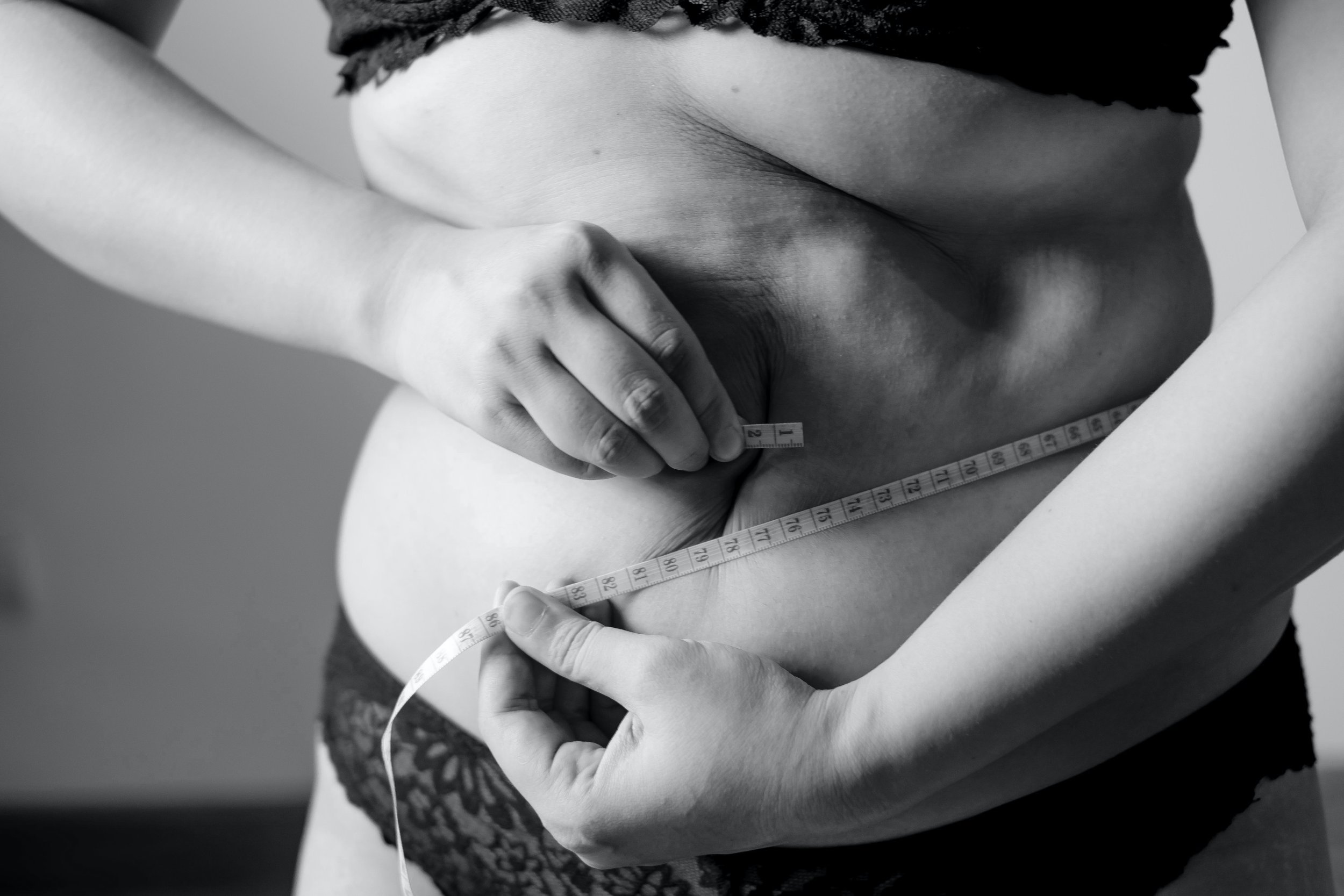Why We Actually Diet
(Hint: It’s Not All About Weight Loss)
An estimated 45 million Americans go on a diet every single year, or about ~15% of the total population.
The top reason we claim to go on a diet? Yep, you guessed it, weight loss. Seemingly obvious, right? Tell me something I don't know.
But if we look a little deeper we find that, although it might seem like we diet for weight loss, it is actually about so much more than the size of our waist. And each person has their own deep, oftentimes hidden, motivation for wanting to lose weight.
How do I know this? Because I have seen time and time again that when (and if) a person can reach their “goal weight”, they don’t feel any better. Sure, they might like the way their body looks more, but weight loss never gives the person what they are really looking for.
So then….if it’s not really about the weight, why do we all keep returning to diets like some kind of toxic, co-dependent relationship that we just can’t get away from?
Why we can’t stop dieting
The reason why we can’t stop dieting and trying to lose weight is because we haven’t identified what we are hoping to gain from our pursuit of weight loss and we aren’t ready to admit that if we can achieve the weight loss, it won’t give us what we are really searching for.
That, and diets fail 95% of the time but we always blame ourselves and our lack of “motivation” or “self control” and so we re-start diet after diet with the mantra of “this time…..I’ll stick to the plan” without realizing that diets fail because they are inherently unsustainable and go against a person’s natural biological drive for survival.
After working with countless individuals who struggle with weight and food, I have found that dieting serves a purpose beyond the front of weight loss.
Dieting and the pursuit of weight loss attempt to fill a deeper, unmet need. And, although this unmet need is unique to each person, I have noticed some trends.
Most of the time, dieting is really about the desire for acceptance, love, belonging, happiness, success, respect, and, most importantly, control.
And although it never actually gives us what we deeply desire, we are constantly told (by diet culture) that it will. So we keep trying, again and again.
My restriction story
Restricting food, also known as dieting, is one of the easiest ways to feel as if we have control over our lives as we attempt to exist in a world that is anything but controllable.
The first time I decided to restrict my food was in 3rd grade.
I developed a paralyzing, totally all-consuming fear of throwing up. So much so that I couldn’t even say the word, developed numerous OCD tendencies, required all of my siblings to wash their hands constantly, and went around cleaning door knobs and light switches with Lysol disinfecting spray like a literal crazy person.
The clinical diagnosis for this is emetophobia, but at the time all I knew was that I was scared and needed to do anything to control the chance that I might throw up.
I dreaded being out in the world where ANYONE at ANY moment could lose their lunch. And if someone in my family was throwing up, dear God, the end was nigh. My family made an unspoken pact to never let Annette know if someone threw up–but I always knew by the dreaded beach towel/bucket combination near the “sick” couch.
At some point, I started believing that if I didn’t eat so much, I wouldn’t have anything to throw up if, heaven forbid, the unspeakable did happen.
I essentially quit eating dinner because nights were when we were most vulnerable to a sneak attack of uncontrollable vomiting.
No birthday cake on my birthday. No chicken noodle soup because people only eat that when they are sick.
“If no food goes in, no food goes back out. I’ve got this on lockdown.”
For 8 years, I obsessed about the V-word all day every day, and for 8 years, I restricted my food. I was already itty bitty, and the restriction didn’t help.
Now, I know that there is a medical diagnosis for what I experienced with food as a child and it’s called Avoidant Restrictive Food Intake Disorder, or ARFID.
The second time I decided to restrict my food was the end of my senior year of college.
It was not a coincidence that I subconsciously decided to do this right before I was supposed to graduate into “adulthood”, the empty abyss of a world where adults do whatever the heck they do, and I didn’t want anything to do with it (sometimes I still don’t, who’s with me?).
Up until that moment I had never known “what I wanted to do with my life”, and it really didn’t help that I still didn’t. This was a significant source of anxiety for me, something I felt like I had no control over.
Enter food restriction round two.
This time, with a side of over-exercising to really be sure I could drown out the fear.
I became vegetarian, went on a raw-foods diet that ended with a binge after 24 hours, and felt constant guilt if I ate something I didn’t deem as “healthy enough”.
I thought about my body constantly, never feeling like it was good enough even though I was technically underweight.
When we restrict food, it is never about the food.
It is never even about our bodies - no matter how much we try to convince ourselves it is. If I could psychoanalyze my 8 year old self, I’d imagine I was simply using restriction to cope with a world that felt too big and too scary. A world that all of a sudden had expectations of me, even if those expectations were only to write my name in cursive perfectly. To behave perfectly.
And if I could psychoanalyze my 21 year old self, I’d say the exact same thing, but instead of the expectation to write in cursive, it was the expectation to make money and be something. Truly horrifying. But to behave perfectly still held up.
So many of us exert control over food and/or our body size to try to cope with a world that sometimes feels too big and too scary.
A world in which bad things happen to good people, one where we might experience a loss so great we feel like we will be obliterated.
It is easier to try to shrink our bodies over and over again than to risk being vulnerable; than to risk loving and being loved.
Our “weight problem” is an easy scapegoat. And there is a seemingly simple solution: lose weight. Except for the weight loss promise of love, happiness, and feeling in control is a big fat lie and when and if we can lose the weight, the deeper issues still remain. Just like someone with a billion dollars can be unhappy, a person in a size 2 can be equally as unhappy.
Until we can give up the convenient excuse of “feeling or being fat”, we do not have to be intimate with others or with our lives, because we are always “on hold” until we can finally figure out our weight issue.
Being intimate and vulnerable with our world comes with a side of risk. Risk of getting hurt, risk of losing, risk of feeling hard things.
Controlling our food and bodies does not carry this risk.
When we can realize, finally, that our unhappiness with our bodies is just that, a convenient excuse, it frees us to be able to come face to face with who we are and what we want.
Everything is within reach when we stop using the excuse of "needing to lose weight" to delay going after what we want: acceptance, connection, rest, peace, love, joy, our dreams.
It is all there, waiting, we just have to understand that we are strong enough to remove the barriers to take it.

